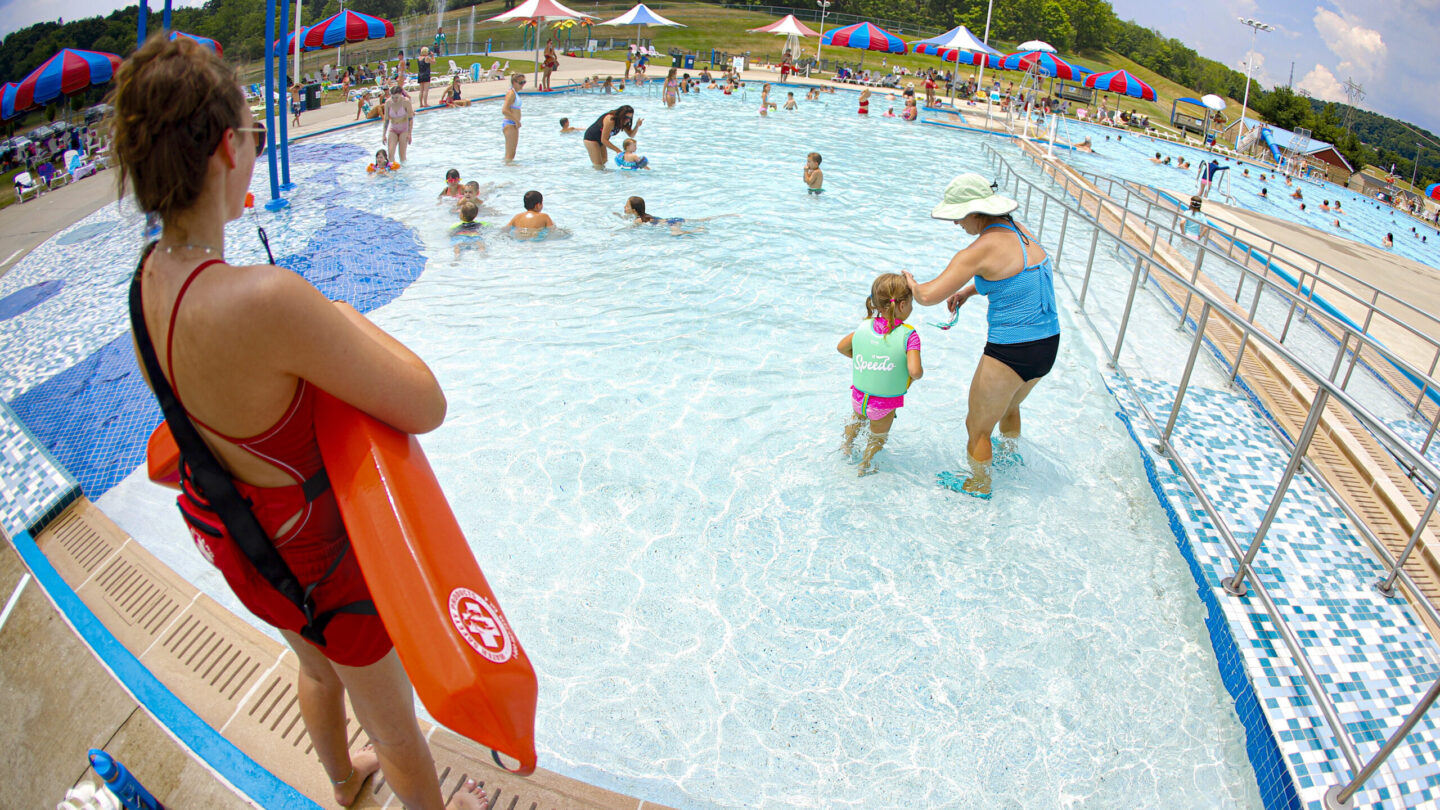Shortages of all kinds are commonplace these days. Now, it’s lifeguards who are in short supply.
The shortage is affecting about a third of public pools across the country, leading some public pools to reduce hours or close altogether, the American Lifeguard Association says. And it says the shortage could extend into next year.
Pools from Raleigh, to St. Louis, to New Orleans, to Austin are seeing the effects. In Raleigh, half of the city’s pools remain closed, ABC11 reported Friday.
The pandemic has taken a toll on the number of lifeguards. It’s meant two years of very little lifeguard training and expiring certifications on top of that, Bernard J. Fisher II, director of health and safety for the lifeguard association, told NPR.
After a lifeguard shortage 20 years ago, which Fisher believes was driven by the development of condos and hotels that needed lifeguards, thousands of people from Eastern Europe came to the U.S. on J-1 visas to fill the lifesaving jobs. The industry came to rely heavily on these visa holders, he said.
Trump’s rhetoric on work visas helped trigger the lifeguard shortage
But the Trump administration sent “shockwaves through that area,” Fisher said.
“Just before the pandemic, we really had a problem because we lost the majority of the J-1 visa students, and then of course, the pandemic hit,” Fisher told NPR. “That was the straw in the camel’s back that broke everything down.”
In the first months of the pandemic, President Donald Trump issued a proclamation that put a number of work visas on pause, including the J-1. International travel was challenging. And the pools were closed, too.
President Biden let the ban on temporary work visas expire. Still, Fisher says recovering from the shortage will take time.
“We will have a lifeguard shortage next year,” he said. “It’s going to take years to get out of this because, you know, the Eastern European situation is not good geographically for candidates to come.”
Swim instructors are being asked to switch to lifeguard duty
Now, amid the shortage, some communities are asking swim instructors to work as lifeguards instead, Fisher said. Yet, one of the ways to prevent drowning is learning to swim as early as possible, he added.
With fewer lifeguards in the chairs, water safety is especially critical, Fisher said.
Fisher emphasized the importance of designating a water watcher — someone in the group who will keep a close eye on the kids. Children who are novice swimmers should also wear life jackets approved by the U.S. Coast Guard whether they’re at the beach or a community pool, he added.
“So many times, groups think that someone else is watching, but in fact, no one’s watching,” Fisher said. “That’s what we’ve been doing for years. And in particular this year, it’s very important.”
Copyright 2022 NPR. To see more, visit https://www.npr.org.
9(MDAxODM0MDY4MDEyMTY4NDA3MzI3YjkzMw004))

9(MDAxODM0MDY4MDEyMTY4NDA3MzI3YjkzMw004))








